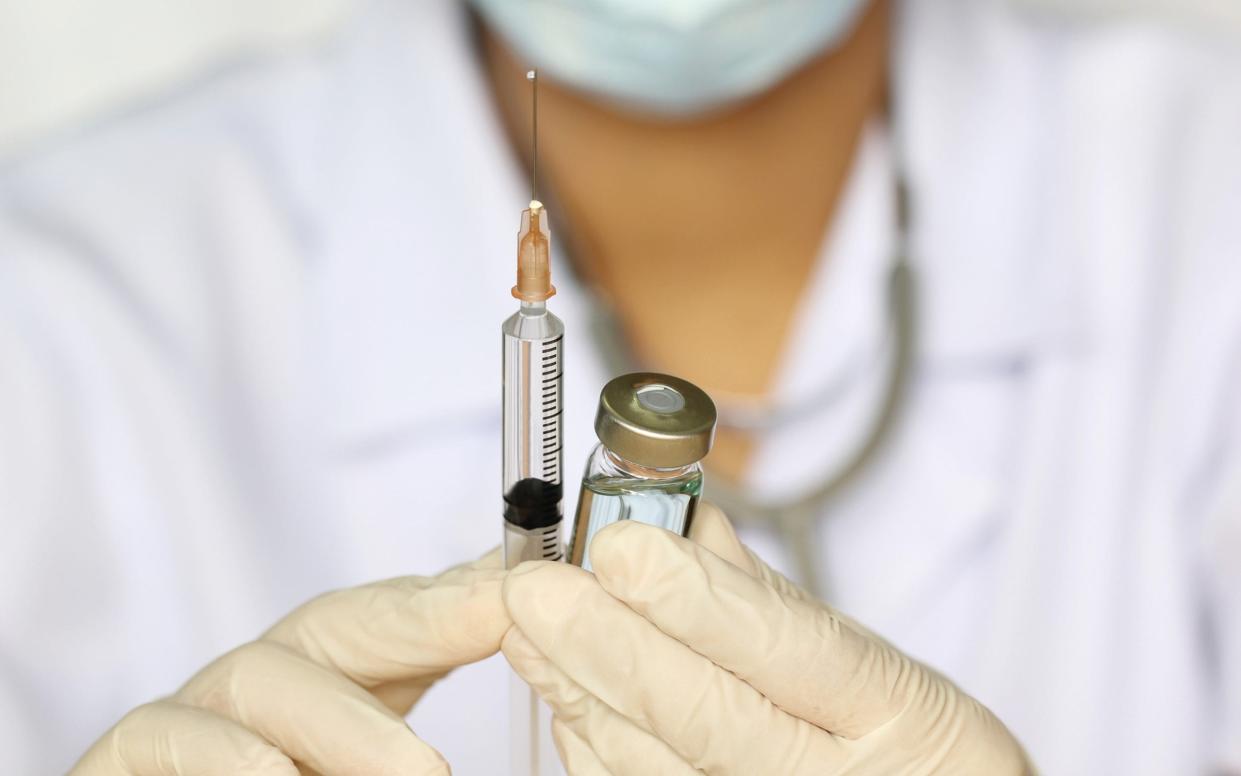Contraceptive injection linked to brain tumours in women

A contraceptive injection has been linked to brain tumours in women, a BMJ study has found.
Researchers found those who had used the contraceptive injection were 5.6 times more likely to develop a brain tumour. The study was the first to assess the risk of treatments using the hormone progesterone in relation to brain tumours.
Progesterone treatments are used by millions of women in various forms, including the contraceptive injection medroxyprogesterone acetate, but also in hormone therapies for menstrual disorders.
Other contraceptives, including the pill and implant, were not linked to increases in rates of the intracranial meningioma brain tumour, which can be fatal.
Experts found that the contraceptive injection, commonly prescribed on the NHS, was associated with the five-fold increased risk in their study of more than 108,000 women in France, including 18,061 who had received surgery for a brain tumour between 2009 and 2018.
However they said the research only found correlation between the injection and the risk of brain tumours, not causation.
70,000 GP prescriptions each month
The contraceptive injection, which lasts for three months and is 99 per cent effective, is a long-acting reversible contraceptive used by around 380,000 women in the UK.
It is used by 2.2 per cent of all women of “childbearing age” in Britain, according to a 2022 global report by the United Nations, which includes women aged 15 to 49.
GPs make around 70,000 prescriptions of the drug each month, while sexual health services offer it in clinics and to order and self-administer at home four times a year.
The report said one in five sexually active women in the US said they had used the contraceptive injection, and researchers estimate that there are around 74 million users worldwide.
The injection works by releasing progesterone and prevents the ovaries from releasing an egg. It has been previously linked to small increases in the risk of breast and cervical cancers.
Around one in 500 people in the general population will develop a brain tumour, with intracranial meningioma accounting for 27 per cent of them, according to Cancer Research UK. It is a tumour of the membranes that cover the brain and spinal cord.
Because of the location, it can cause serious problems even if not cancerous, including loss of vision, smell, memory and hearing, ringing in the ears, seizures and weakness in the arms or legs.
In the study, led by the French National Agency for Medicines and Health Products Safety, the incidence increased from 0.1 per cent to 0.5 per cent among the women who had used the contraceptive injection in the previous year and taken it for at least one year.
When asked by The Telegraph, the Medicines and Healthcare products Regulatory Agency (MHRA) could not say whether it would reconsider the drug’s safety in response to the findings, which would affect its availability on the NHS.
Two other drugs used in Europe but not the UK to treat a range of conditions including irregular bleeding, menstrual disorders and premenopausal disorders also raised the risk of a brain tumour. Medrogestone increased the risk by 4.2 times, while promegestone increased it by 2.7 times.
The research also reinforced previous findings that linked the progesterone drugs chlormadinone acetate, nomegestrol acetate and cyproterone acetate to tumour growths.
There was no risk from the combined or progesterone-only birth control pills available on the NHS.
‘Small increase in risk’
Paul Pharoah, a professor of cancer epidemiology at Cedars-Sinai Medical Centre in the US, said many of the findings in the study did not relate to UK prescriptions, but added that there were risks around medroxyprogesterone acetate.
“Women taking the commonly used birth control pills or hormone replacement therapy are not at increased risk of meningioma,” he said. “The notable exception is medroxyprogesterone acetate, which is sometimes used as an injectable form of contraception in the UK.”
Prof Pharoah said around 40 out of 10,000 30-year-old women in Britain would be expected to be diagnosed with a meningioma before the age of 80.
“This increases to 200 in those who have used medroxyprogesterone acetate,” he said, stressing that it was still “a rare disease” and adding: “This small increase in risk needs to be considered in relation to the benefits of using an injectable form of contraception.”
Dr Karen Noble, the director of research, policy and innovation at Brain Tumour Research, said: “Any increased understanding of the risk factors of brain tumours is beneficial to the brain tumour community. It may open doors to research on preventative measures, as well as increase our understanding of why these tumours arise in the first place.
“Although this study has linked certain progestogen treatments to an increased risk of meningioma, it has also demonstrated the safety of other progestogen treatments, which were shown to not increase risk. If you are concerned, it is recommended that you speak to your GP before stopping any prescribed treatment.”
Recommended
Why women are turning their backs on the pill

